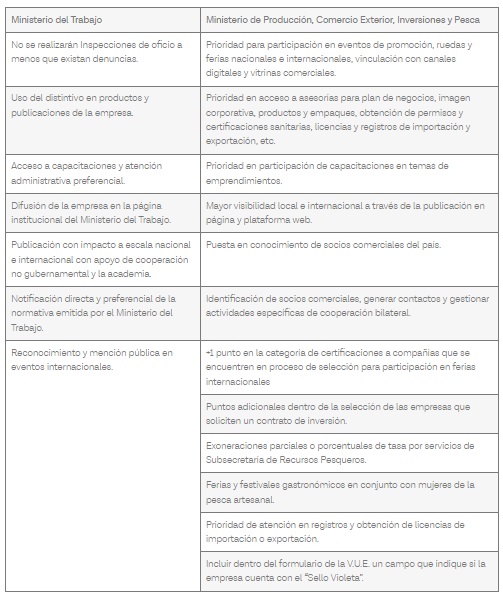
22-07-2024 | Noticias-en
In June 2024, the U.S. Supreme Court issued two landmark rulings, Securities & Exchange Commission v. Jarkesy and Loper Bright Enterprises v. Raimondo , each of which has broad implications for the powers of the executive branch. While neither decision specifically addressed the powers of agencies focused on national security or foreign policy, such as the Department of Commerce’s Bureau of Industry and Security (BIS) or the Department of the Treasury’s Office of Foreign Assets Control (OFAC), some of the broader language in these decisions could call into question the potential for these agencies, which are often granted broad regulatory deference and sweeping enforcement powers, to suffer an erosion of their authority.
Jarkesy – Let’s Leave Common Law Claims to the Courts, Not the Agencies
On June 27, 2024, the Court issued a decision invalidating the Securities and Exchange Commission’s (SEC) statutory authority to impose civil penalties for fraud violations in a forum outside of a federal court. The case concerned whether the SEC could impose a civil penalty against a defendant accused of fraud through the SEC’s internal administrative forum, rather than in federal court. Although Congress authorized the SEC to do so internally, the Court ruled that the SEC’s civil penalty action implicated the Seventh Amendment to the U.S. Constitution, which provides for a right to a jury trial in “common law suits.” The Court’s decision focused on the fact that civil monetary penalties had traditionally been imposed by common law juries, particularly in cases involving common law fraud.
Jarkesy Exception – Public Rights: Over the past 50 years, the Court has carved out an exception to the Seventh Amendment’s right to trial by jury in cases involving “public rights.” The Court made clear in its opinion in Jarkesy that this exception cannot be allowed to swallow up the general presumption in favor of a right to trial by jury before an Article III court and must be limited to cases analogous to those traditionally excepted from the right to trial by jury, including (but not appearing to be limited to) “the collection of revenue, the enforcement of customs laws, immigration, and the granting of public benefits.” Beyond this list of traditionally excepted “public rights,” the Court did not elaborate on a test for determining whether a claim falls within the public rights exception.
Loper Bright – Ambiguous Statutes Do Not Automatically Imply Deference by Agencies
On June 28, 2024, the Supreme Court issued a ruling that overturned the nearly 40-year-old doctrine known as Chevron deference , which required courts to defer to an executive agency’s reasonable interpretation of ambiguous statutes, even if the Court would have found a different interpretation to be best. Loper Bright reversed Chevron , holding that courts must, in interpreting an ambiguous statute, exercise their “independent judgment” in deciding the proper interpretation of the statute, and may not simply defer to whatever agency interpretation is permissible.
The Court rejected the view that agencies are experts best suited to interpret statutory ambiguities, noting instead that courts can do their “ordinary work” of interpreting statutes “with due respect for the views of the Executive Branch,” which can help inform a court’s judgment. This last point is important: While courts will no longer defer to any “permissible” interpretation of an ambiguous statute, they are still permitted to consider and give great weight to a well-reasoned interpretation of the statute by the agency. The better the agency’s reasoning, the more deference it will be given, and the more likely a court will find its reasoning to be the correct interpretation of an ambiguous statute.
Jarkesy and Loper Bright in the context of national security
Neither Jarkesy nor Loper Bright cited any explicit “national security” or “foreign affairs” exceptions in their respective opinions. Thus, unless challenged, the rulings in those cases may be applicable to agencies that administer and enforce national security-focused regulations, including those in the Treasury and Commerce Departments. Below, we discuss the potential implications of the cases for national security-focused agencies:
Jarkesy, in particular, creates potential limitations on agencies’ enforcement power regarding sanctions, export controls, and anti-money laundering (AML) violations, among others. Enforcement agencies such as OFAC, BIS, the Financial Crimes Enforcement Network (FinCEN), and the Committee on Foreign Investment in the United States (CFIUS) rely on authorities within their regulations to issue civil monetary penalties for potential violations.
OFAC, for example, can take a range of administrative actions pursuant to its regulations, such as unilaterally imposing civil monetary penalties or negotiating settlements with a potential violator of U.S. sanctions. Such broad enforcement mechanisms may leave a potential violator with little bargaining power with national security agencies and also serve to deter private actors from committing future violations.
It is unclear whether Jarkesy’s largely undefined “public rights” exception includes cases involving matters of national security or foreign affairs, particularly in cases involving the administrative imposition of monetary penalties imposed for fraudulent or willful conduct that may have required a jury trial at common law. Practitioners and their clients alike should pay close attention to future lawsuits challenging administrative penalties and, if appropriate, consider challenging such penalties based on the Jarkesy decision.
A potential increase in civil challenges to OFAC, BIS, FinCEN and CFIUS regulations .
Historically, there have been few instances in which private actors have successfully challenged national security agencies’, such as OFAC’s, interpretations of statutes within their area of expertise. Moreover, Loper Bright left intact the Court’s 2019 decision in Kisor v. Wilkie, which held that some deference should be given to an agency’s interpretation of its own ambiguous regulations, provided that the regulations are truly ambiguous and the agency’s interpretation is reasonable and, in fact, a product of its own expertise. Reversing the Chevron doctrine and limiting agency deference could prompt further limitations to the Kisor rule, thereby providing an easier path for potential litigants to challenge national security agencies’ increasingly numerous and complex regulations.
All of this is taking place against the backdrop of a raft of new regulations or notices of proposed rulemaking (NPRMs) issued by the Biden administration regarding technology-related investments to and from China. While such rules and NPRMs could go into effect in the near future, they are likely to face challenges, according to Jarkesy and Loper Bright.
For more information, please contact:
Timothy P. O’Toole, totoole@milchev.com, 202-626-5552
Laura Deegan, ldeegan@milchev.com, 202-626-5942
Caroline J. Watson, cwatson@milchev.com, 202-626-6083
Melissa Burgess, mburgess@milchev.com, 202-626-5914
Manuel Levitt, mlevitt@milchev.com, 202-626-5921
Annie Cho, acho@milchev.com, 202-626-1570

19-07-2024 | Noticias-en
The Plenary Session of the Congress of the Republic unanimously approved the opinion of Bills No. 2942/2022, 3131/2022 and 3541/2022 (the “Opinion”), which modifies literal e. of article 58.1 of Law No. 29571, Consumer Protection and Defense Code (the “Code”), regarding the prohibition of spam calls.
With this amendment to the Code, companies would be prohibited from using call centers , telephone calling systems, sending text messages to cell phones or mass electronic messages to offer products or services to consumers, unless the latter, on their own initiative, have given their free, prior, informed, express and unequivocal consent to be contacted to receive commercial or advertising communications. This includes the prohibition of making calls to establish initial contact with the consumer and request their consent, which is currently permitted by the Code.
The Opinion also specifies that consent may be revoked with immediate effect and without giving any reason, at any time and in accordance with personal data protection regulations. Furthermore, it provides that the violation of this prohibition or its revocation is a very serious infringement.
Finally, the Opinion incorporates article 58.3 into the Code, the text of which states that in order to guarantee consumer protection against aggressive or deceptive commercial methods, the State establishes rules for the proper use of sending messages and calls on telecommunications networks. For the application of this provision, the Sole Final Complementary Provision of the Opinion states that within a period of 60 calendar days – counted from its entry into force – the Executive Branch will establish additional regulations that grant special telephone numbers to providers, security methods and validation techniques so that users can identify the calls they receive.
You can access the Opinion .
For more information on this topic or any questions:
innovacion@cpb-abogados.com.pe

15-07-2024 | Noticias-en
By Decree No. 852 of July 5, 2024 (the “Decree 852”), the Ministry of Environment and Sustainable Development (the “MADS”) modified the environmental licensing regime for energy generation projects from non-conventional sources (“FNCER”).
What changes does Decree 852 introduce?
Decree 852 introduced the following modifications:
- Change in the powers of the ANLA and the CAR.
- Introduction of a new definition.
- Transitional regime regarding the change of powers.
Download the newsletter here .

12-07-2024 | Noticias-en
On May 25, the National Secretariat for the Fight against Money Laundering and the Financing of Terrorism (SENACLAFT) published the Guide of signs and indicators of money laundering risk for Non-Financial Obligated Subjects in the use of virtual assets. The objective of the Guide is to facilitate the evaluation of risks when using virtual assets.
Article 19 of Law 19,574 establishes a risk-based approach, establishing that obligated parties must apply enhanced due diligence procedures in those cases in which new technologies that promote anonymity are used. In this sense, in operations where virtual assets are used, the obligated party must necessarily apply enhanced due diligence measures.
SENACLAFT highlights that at the time of publication of the Guide, the activity of virtual service providers, as well as the use of virtual assets, is not legally regulated in the country, a situation that may change in the short term.

12-07-2024 | Noticias-en
On June 11, 2024, Interministerial Agreement No. MCEIP-MDT-2024-001-AI was signed between the Ministry of Labor and the Ministry of Production, Foreign Trade, Investments and Fisheries. The new regulations stipulate that companies wishing to obtain the “Violet Seal” must take into account principles, norms, actions and indicators that demonstrate the employer’s commitment to eliminate barriers, wage gaps, situations of violence, harassment and discrimination, promotion of promotions and conciliation with care tasks, elimination of discriminatory permits and breastfeeding, as well as the promotion of equality in collective bargaining.
Both ministries announced that they will grant the following benefits to companies that obtain the “Violet Seal”:

Procedure for obtaining the “Violet Seal”:
To obtain this badge, companies must submit the following documents through the Document Management System of the Ministry of Labor:
Application form for obtaining the “Violet Seal” Distinctive.
Payroll of Workers.
Notice of Entry to the IESS of the workers.
Payment roles for the last three months of the workers.
Proof of payment of the workers’ reserve funds; delivery of supplies, instruments; delivery of clothing.
Document of not being in arrears or maintaining glosses or credit titles in the certificate of compliance with obligations issued by the IESS.
Documents that demonstrate compliance with the Program for the Prevention of Psychosocial Risks registered in the Ministry of Labor.
Comply with the equality policies and the guidelines provided by the Ministry of Labor for compliance with these.
Not having been sanctioned for a complaint from a worker due to discrimination, workplace harassment, sexual harassment at work or violence against women in the last three (3) years.
Equality Plan Registry.
Job Manual in accordance with current regulations.
Human Talent/Human Resources List that includes promotions and professional development.
Registry of training carried out in the last year.
Implementation of current regulations to eliminate harassment, violence and discrimination.
Within 60 days of submitting the documentation, the certifying entity will issue a report analyzing the submitted documentation and will decide whether to approve or deny the granting of the “Violet Seal”. Once the Ministry of Labor knows the final approval report, it will grant the “Violet Seal” Resolution and its distinctive mark.
The duration of this badge will be 1 year from the date of delivery and may be renewed for equal periods indefinitely.
Finally, the Ministry of Labor reported that it will delegate the review of the requirements and certification of this distinction to entities that meet the requirements set forth in the regulations. Likewise, labor inspections may be carried out to verify the effective application of the actions implemented in the prevention, promotion and guarantee of women’s rights in the workplace.
If you require additional information, please contact the email laboral@bustamantefabara.com

02-07-2024 | Noticias-en
New provisions of the Ministry of Labor, Employment and Social Security (MTESS) are established to update and simplify registration in the Employer-Worker Registry, the presentation of mandatory documents and work books, and the electronic transmission of data and documents.
1. Registration in the Employer-Worker Registry
All employers must register in the Employer-Employee Registry at the start of their activities and register their branches in the event of new openings.
Registration in the Employer-Worker Registry can be done through:
MTESS web platform.
Web platform of the Unified System for Opening and Closing Companies (SUACE).
Automated registration through the link between the computer systems of the MTESS and the Social Security Institute (IPS).
Regarding branches, these must be registered:
Branches with economic activity different from those registered: At the beginning of the employment relationship;
Branches that have the same activity different from those registered: Upon opening of the branch in the RUC.
2. Communications Mandatory to the MTESS
The following communications are established as mandatory:
Entries and exits of workers;
Licenses, permits and vacations;
Disciplinary sanctions;
Work accidents and occupational diseases;
Salary settlements, Christmas bonuses, family bonuses;
Justified and unjustified absences;
Notice communications and settlements for termination of employment contract;
Enabling daycare centers and breastfeeding rooms.
Updating company and employee data through the MTESS platform.
3. Labor Information Book
The Labor Information Book is enabled, replacing the labor books of salaries and wages, vacations and employees.
The Labor Information Book will be kept in digital format and records detailed information on workers in accordance with communications made by employers to the MTESS platform.
For MSMEs, this book is replaced by the Single Personnel Registry in digital format.
The validity of the book requires confirmation of the data by the employer within the period set by the MTESS. The confirmation will occur automatically at the end of the period, with a mechanism to rectify or modify the data later.
The Labor Information Book contains the following information:
Name and surname, address, identity card, date of birth, marital status, profession, position, nationality.
Start and end date of the employment relationship.
Days and hours worked.
Weekly day of rest.
Salaries received and their purpose.
Overtime worked and amount received for them.
Dates on which each of the workers took their vacations, the duration and the remuneration granted.
Christmas bonus.
4. Digital System for the Transmission of Data and Documents
The MTESS will implement a platform for the digital transmission of data and documents that employers must submit in accordance with current regulations.
The MTESS and IPS systems will be linked to automate communications regarding the entry and exit of workers and employer registrations.
5. Fines for Non-Compliance
Registrations on the MTESS web platform must be completed within 60 days. Failure to comply will be punished with fines of 10 to 20 minimum daily wages.
Late communication of data will be punished with fines of 1 to 3 minimum daily wages. Lesser fines will apply to MSMEs.
6. Gradual Implementation
The MTESS will establish the dates for the gradual entry into force of the Labor Information Books and the Single Personnel Registry in digital format and the employers that will be reached.
Employers who are not temporarily covered must continue to submit their pending payroll forms for the 2024 period and prior periods, and make the mandatory communications through the MTESS platform.
Failure to submit tax forms will be punished with fines of 10 to 20 days’ wages, with lesser fines for MSMEs.
7. Retroactivity
Employers affected by the gradual implementation will have to retroactively make communications and updates from January 1, 2024 to establish books and records of labor information.






